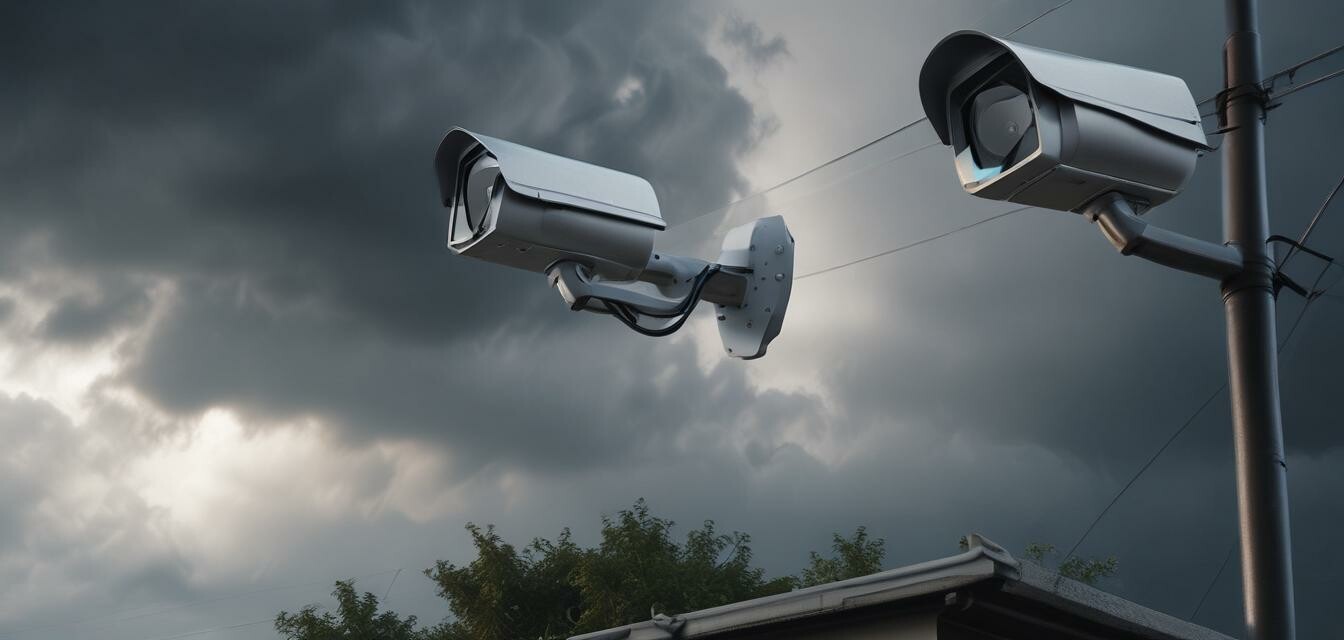
Preparing your home security for natural disasters
Natural disasters can be unpredictable and devastating. It is vital to ensure that your home security system is effective, particularly when faced with threats like floods or storms. In this article, we'll explore key strategies to enhance your home security in preparation for these natural occurrences.
Key Takeaways
- Assess vulnerabilities in your home security system.
- Ensure proper placement and functionality of security cameras.
- Regularly maintain your security systems to avoid failures during critical times.
- Consider investing in weather-resistant equipment.
- Prepare an emergency action plan that incorporates your security strategies.
Understand the threats
Natural disasters come in various forms that can compromise your home security. Here are some common threats you should consider:
- Flooding: Water can damage security systems, making them ineffective.
- High winds: Storms can uproot trees that may damage your home or security cameras.
- Power outages: Loss of electricity can disable non-battery-operated security devices.
Key strategies for securing your home
Implementing effective strategies can significantly enhance your home security before a disaster strikes. Below are critical measures to take:
1. Assess your security system
Begin by evaluating your current security measures:
| Security Feature | Assessment Criteria | Actionable Steps |
|---|---|---|
| Cameras | Functionality and placement | Ensure they cover key areas; replace any damaged units. |
| Alarms | Battery backup system | Replace batteries and ensure the system operates efficiently during power outages. |
| Lighting | Positioning | Check that all paths and entrances are well-lit to deter intruders. |
2. Install weather-resistant security devices
When purchasing new security devices, consider those that are designed to withstand severe weather conditions:
- Opt for cameras and alarms that are rated for extreme temperatures and moisture.
- Choose outdoor equipment that can endure heavy rain and wind.
3. Create an emergency action plan
Your home security plan should include:
- A designated safe room where family members can gather during a disaster.
- Communication plans to reach loved ones and emergency services.
- An evacuation route that considers security factors, such as door locks and alarm systems.
4. Regular maintenance
Keeping your security systems well-maintained is crucial. Tasks include:
- Cleaning cameras regularly to avoid obstructions.
- Testing alarms and sensors periodically to ensure they function correctly.
- Updating software for smart devices to protect against vulnerabilities.
Tips for beginners
- Start small by checking the battery life of alarms and lights.
- Familiarize yourself with your security system's manual for troubleshooting.
- Consider downloading a home management app to monitor your system remotely while away.
Pros
- Enhanced safety during disasters.
- Peace of mind knowing your home is protected.
- Potential reduction in damages caused by theft or vandalism.
Cons
- Initial cost of installing weatherproof security systems.
- Ongoing needs for maintenance and updates.
- Dependence on electrical systems for camera functionality.
Conclusion
Preparing your home security for natural disasters is essential in safeguarding your property and loved ones. By taking a proactive approach, addressing vulnerabilities, and investing in quality systems, you can ensure your home remains a secure haven. For additional insights and tips on enhancing your home security, visit our Home Safety Tips and Best Practices section.
Learn more
To expand your understanding of home security, check out related articles on:
- CCTV Systems for broader surveillance solutions.
- Security Alarms & Sensors for protecting your home.
- Home Automation & Accessories to integrate advanced technologies.
- Wireless Security Cameras for flexibility in installation.
- Solar-Powered Cameras as an efficient, eco-friendly option.
